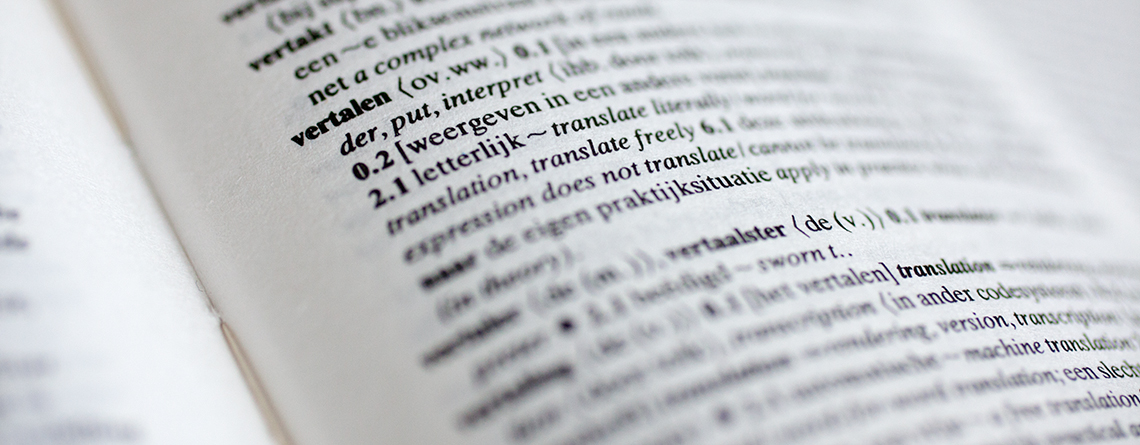How do you proceed with translation projects?
How much does a translation cost?
What is proofreading? What does it consist of?
How much do interpreting services cost?
How do I request an estimate?
How do you handle additions or corrections after a translated document has already been delivered?
What guarantees do you provide to protect document contents from being divulged to third parties?
Who actually does the translations?
What exactly is computer aided translation (CAT)?
What’s the difference between a simple translation, certified translation, sworn translation, legalised translation and/or translation with apostille?
How do you proceed with translation projects?
The customer is entrusted to a Project Manager who personalises the task and is responsible for its completion. The Project Manager selects a team of translators according to their fields of specialisation, coordinates their work and that of the proofreader and liaises with the customer. The translator is provided with a customer-provided glossary or a glossary/instruction sheet drawn up by the Project Manager. The translation is always reviewed by an editor to ensure linguistic and stylistic accuracy and a proofreader to ensure spelling accuracy.
The translated text is then sent to the customer as desired by the latter: email, paper copy, magnetic support, Skype or FTP.
Lastly, the Project Manager runs a follow-up check to verify customer satisfaction.
How much does a translation cost?
The cost of a translation varies according to the language and type of text. The standard unit of measure is the typewritten page but, in some cases, we adopt words or lines as a unit of measure (e.g. in the case of PowerPoint text, drawings, graphics, captions, tables or texts supplied with Translation Memories). In order to provide you with a precise estimate of costs it is always good practice to send us a copy of the document to be translated via e-mail, Skype or FTP.
What is proofreading? What does it consist of?
Proofreading is a re-read of the translation produced by the translator: the proofreader has the task of checking the veracity and coherency of the target language with the source language in terms of spelling, syntax, style and terminology. This part of quality control requires human skill, giving the translation essential added value as IT tools alone are not always capable of highlighting discrepancies. Every text we translate is proofread before delivery to the customer.
How much do interpreting services cost?
An estimate of interpreting costs requires an understanding of the type of service required by the customer: factors such as the environment in which the interpreter will be working, the number of languages to be translated, the number of speakers, the number of participants and the type of technical equipment required all need to be taken into account.
How do I request an estimate?
To get a quick estimate just send the text to be translated via FTP, Skype or email. The offer is formalised by the Sales Manager who returns a detailed estimate of cost, times and modus operandi. Once you accept our estimate the Project Manager will begin the work.
How do you handle additions or corrections after a translated document has already been delivered?
Any style or grammar corrections are at the expense of CTI, while any modifications or additions requested after the translated text has already been delivered are quantified in a new estimate.
What guarantees do you provide to protect document contents from being divulged to third parties?
Ethical guidelines adhered to by translation and interpreting companies belonging to Unilingue require that both supplier and translator adhere to precise confidentiality rules: professional secrecy is a requirement for all CTI translators/interpreters.
Who actually does the translations?
Translations are carried out exclusively by professional mother-tongue translators specialised in specific fields: we never use automatic translation software. Our customers’ texts will, over time, be entrusted to the same translators to ensure consistency of style and terminology.
What exactly is computer aided translation (CAT)?
Computer Aided Translation lets the translator produce and update a specific customer-related terminology database so that terms/expressions acquired and approved within the context of a specific translation can be reutilised in subsequent projects for the same customer, reducing completion times and costs considerably. Aided translation is not automated translation: our translators never use automated translation systems such as Google Translate.
What’s the difference between a simple translation, certified translation, sworn translation, legalised translation and/or translation with apostille?
A simple translation consists of translating the contents of a document into another language and is not legally valid.
A translation is defined as certified when it is printed on our own headed notepaper and signed by one of our legal representatives who certifies the translation has been carried out by a professional translator; however, once again, the document has no legal validity.
The translation is defined as sworn when the translator attaches the translated version to the customer-provided source document (original or copy) and, as a last page, the official sworn translation report (in which he/she declares the text has been translated “correctly and faithfully… for the sole purpose of ascertaining the truth”); the sworn translation report documents the swearing of the translation in the presence of a public official and includes the signatures of both the public official and the translator. The latter, then, officially declares that the translated text corresponds to the source text and assumes full responsibility for the translated document which thus acquires legal validity.
In addition to a sworn translation, the Authority to which the document is addressed may also require legalisation (Prefecture) of the signature of the Public Official who counter-signed the sworn translation report.
Legalisation is replaced by an apostille certificate (Public Prosecutor) when the original document has been released by an Authority of a country adhering to the Hague Convention.

